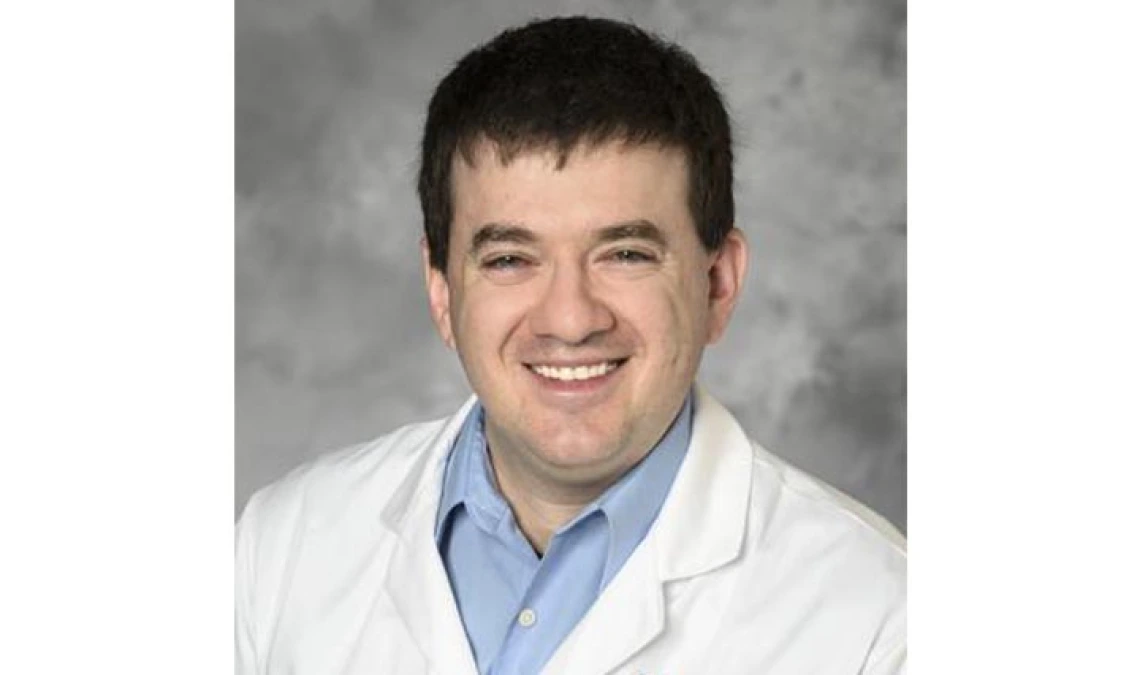Many Non-Hodgkin’s Lymphoma Patients Can Skip Radiation, Suggests Study Led by UArizona Researcher
Results from a SWOG Cancer Research Network study, led by Daniel Persky, MD, found many patients with the most common type of non-Hodgkin’s lymphoma can skip radiation treatment, reducing both costs and the time to heal from treatment.

A recent study led by a University of Arizona Cancer Center researcher suggests that many non-Hodgkin’s lymphoma patients can skip radiation in favor of a simpler course of treatment.
Daniel Persky, MD, served as the lead investigator for the study administered by the SWOG Cancer Research Network (a clinical trials network funded by the National Cancer Institute). Results were presented Dec. 8 at the 61st American Society of Hematology (ASH) Annual Meeting in Orlando, Fla.
The study found U.S. patients diagnosed with the most common subtype of non-Hodgkin’s lymphoma, diffuse large B-cell lymphoma (DLBCL), can safely skip radiation treatment after a clear positron emission tomography (PET) scan.
Dr. Persky is associate director of clinical investigations and director, Clinical Trial Office – Tucson, at the UArizona Cancer Center. He specializes in hematology/oncology, particularly in lymphoid malignancies, such as lymphoma and CLL. In addition, he serves as an associate professor of medicine at the UArizona College of Medicine – Tucson.
EDITORS PLEASE NOTE: To arrange an interview with Dr. Persky, please contact Blair Willis, 520-626-0331, or bmw23@arizona.edu.
The SWOG Cancer Research Network announced the study results in the following news release: “No radiation needed for many aggressive non-Hodgkin's lymphoma patients.”
About the University of Arizona Cancer Center
The University of Arizona Cancer Center is the only National Cancer Institute-designated Comprehensive Cancer Center with headquarters in Arizona. The UArizona Cancer Center is supported by NCI Cancer Center Support Grant No. CA023074. With its primary location at the University of Arizona in Tucson, the Cancer Center has more than a dozen research and education offices throughout the state, with more than 300 physicians and scientists working together to prevent and cure cancer. For more information: cancercenter.arizona.edu(Follow us: Facebook | Twitter | YouTube).
About the University of Arizona Health Sciences
The University of Arizona Health Sciences is the statewide leader in biomedical research and health professions training. The UArizona Health Sciences includes the Colleges of Medicine (Tucson and Phoenix), Nursing, Pharmacy, and the Mel and Enid Zuckerman College of Public Health, with main campus locations in Tucson and the growing Phoenix Biomedical Campus in downtown Phoenix. From these vantage points, the Health Sciences reaches across the state of Arizona and the greater Southwest to provide cutting-edge health education, research and community outreach services. A major economic engine, the Health Sciences employs nearly 5,000 people, has approximately 900 faculty members and garners $200 million in research grants and contracts annually. For more information: uahs.arizona.edu (Follow us: Facebook | Twitter | YouTube | LinkedIn | Instagram)
SWOG Cancer Research Network is part of the National Cancer Institute’s National Clinical Trials Network and the NCI Community Oncology Research Program, and is part of the oldest and largest publicly-funded cancer research network in the nation. SWOG has nearly 12,000 members in 47 states and six foreign countries who design and conduct clinical trials to improve the lives of people with cancer. SWOG trials have led to the approval of 14 cancer drugs, changed more than 100 standards of cancer care, and saved more than 3 million years of human life. Learn more at swog.org.

